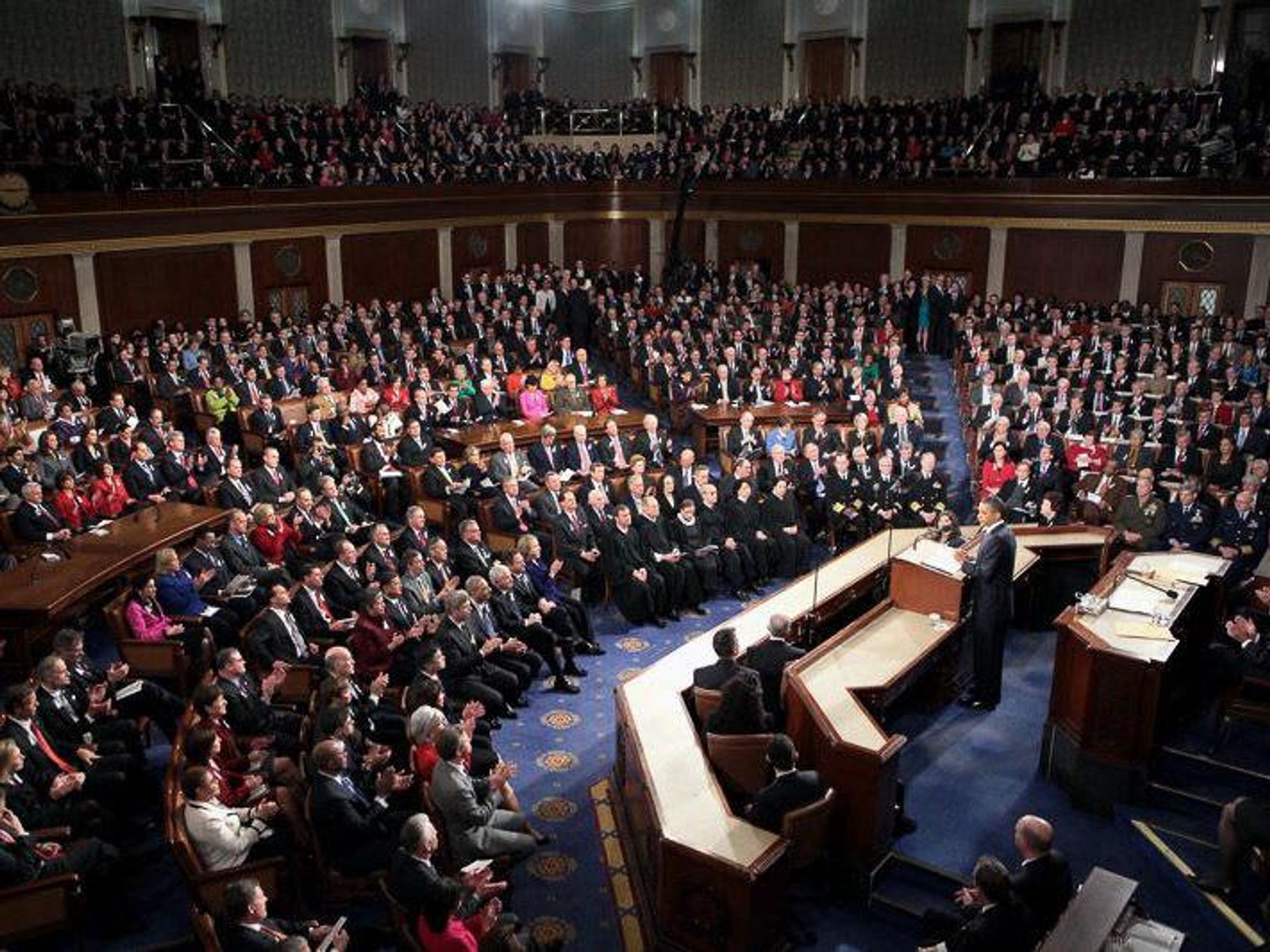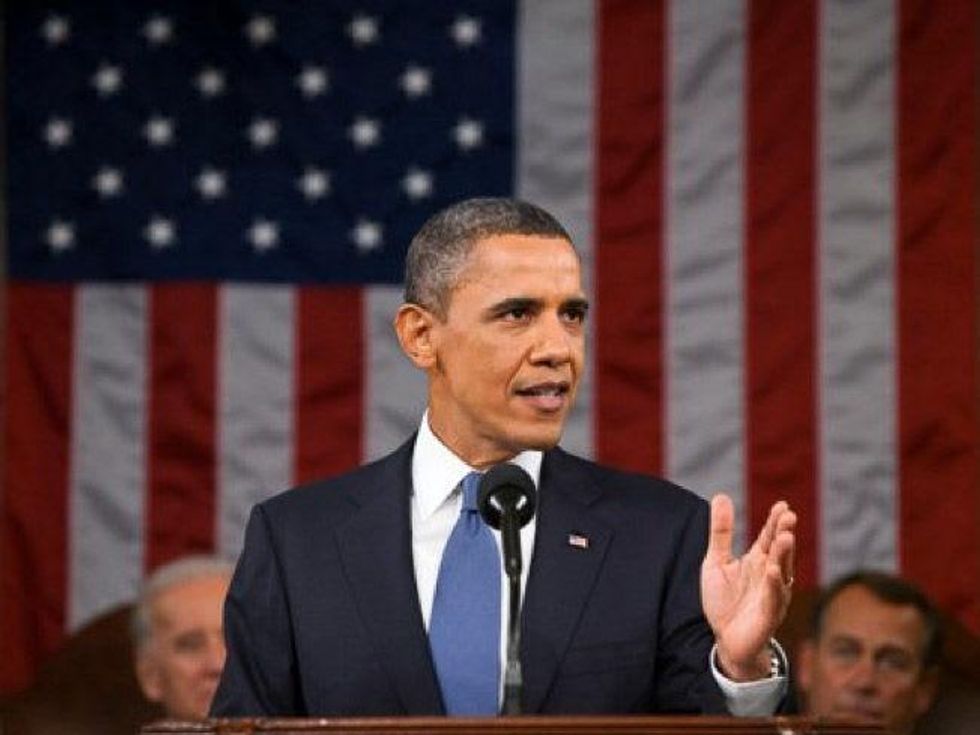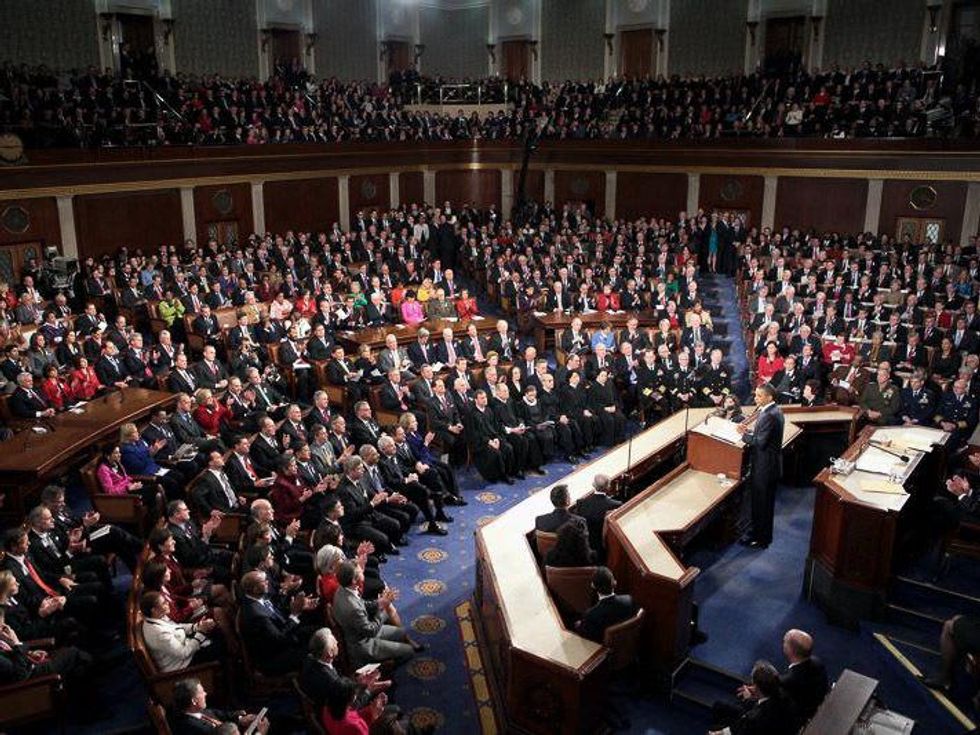The State of the Union
In the theater of politics, audience participation is an illusion

American democracy is like going to the theater; everyone involved expects you to sit quietly, pay attention, and feel like you’re a part of the action while the drama unfolds without you.
Perhaps that’s a little cynical, so I’ll amend the analogy: American democracy is like a midnight showing of Rocky Horror Picture Show; you can yell and scream and throw things in order to feel like you’re participating, but it won’t change the way the movie ends.
Theater companies love flashy galas and, true to form, politics are no different. And so it is, as mandated by the Constitution, that from time to time the President must come before the Congress and inform them of the State of the Union. Tuesday night’s address was more or less exactly what one would expect — a President recently chastened by the midterm election delivering a lot of fluff and platitudes interspersed with idle challenges and empty promises. But, I’m a fan of analyzing classic drama, so it’s not a totally empty to exercise to examine what was said.
This State of the Union, like the rest, contained a lot of “Lee Greenwood-esque” fluff which can be as easily ignored as stage directions (with the exception, of course of “Exit, pursued by a bear”). That being said, I found the brief call for mindfulness of Congresswoman Giffords’ chair to be a classy and understated way of addressing that national tragedy, particularly after so much has already been said and written about it, much by the President himself. The only other early moment that perked my ears was what I can only imagine was a moment of unintentional honesty. President Obama, in describing our “American family,” said that “every race and faith and point of view can be found.” It sounds nice, but the implicit undertone was that while all this diversity can be found in America, it’s not always accepted and almost never gets a place at the political table.
Race? Ask the African American community, which suffers nearly six times the incarceration rate of whites, or the Hispanic honor student who, though raised here since infancy, cannot dream of college. Faith? Ask The Muslim population of the United States, estimated at almost 2.5 million, yet overtly restricted in their freedom of worship while only two Muslims serve in the United States Congress. And “points of view?” There is only one, count him, ONE member of Congress from a third party (and no, the “Connecticut for Leiberman Party” doesn’t count): Bernie Sanders, Socialist-Vt. This criticism may not seem germane to a discussion of the address, but what the President implicitly referenced — the structural exclusion of anyone deemed to be “other” from the American political arena — has to be considered to properly evaluate the political reality upon which President Obama commented.
The President’s specific policy recommendations were pretty much what you’d expect. It seemed almost insulting to the American worker that the President gave a nod to his massive, deficit exploding, tax “compromise,” during which the Republicans held the middle class hostage in order to insure tax breaks for the super-wealthy, and then immediately waxed Rockwellian (or perhaps Orwellian) about the good old days, when America had a vast industrious middle class. Those days, the President was at least brave enough to admit, are over. But rather than addressing the growing income inequality that has pushed the middle class to the edge of extinction (due in no small part to policies lowering upper-income taxes), President Obama blamed “revolutions in technology,” and used this point as a springboard into a long discussion of the need for “innovation” and improvement in math and science education.
The theory that a dwindling middle class stems from technological advances and a subsequent increased demand for education and decreased demand for labor, a theory to which the President apparently fiercely adheres, can only tell a fraction of the story. This theory of progress is a favorite of the economic elite, because it allows them to blame technology (which everyone loves) for negative consequences that are largely the fault of greed and manipulation on the part of those rich enough to pull the political puppet strings. I agree with the President that an increased emphasis on education is extremely important to our country’s future, but I think it is idealistic to suggest that better teachers and free enterprise is all we need to become competitive in a global market, while still providing some measure of equity for our citizens.
Education dominated a big part of the Address, which makes sense, because even the most blatantly anti-intellectual, education budget cuttin’ Republican (Lookin’ at you, Gov. Perry) will stand up and cheer when you talk about little Jimmy having a better algebra teacher and getting to go to college. Education is a safe subject, and “safe” was a big part of Obama’s approach Tuesday night, even in the realm of foreign policy — innovation in this part of your speech can be a dicey proposition; “Axis of Evil” anyone?
There were some moments where the President shined, but I couldn’t help sensing a tinge of sadness on the heels of every smile. Cutting oil company subsidies? Huzzah! But investing in “clean coal?” Clean coal is like a 300-calorie James Coney Island combo meal with cheese on everything — if anyone tells you it’s possible, they’re lying. A path to citizenship for non-citizen students? Hooray! Too bad that won’t happen, because the Republican House of Representatives has to cater to its xenophobic Tea Party base. Increased infrastructure spending? Yippee! Shame that’s probably a non-starter too, given the conservative obsession with tax-cuts as the only way to cut the deficit and create jobs.
Tuesday night’s address, on the whole, didn’t fill me with much hope. We'll continue to just sit and watch while corporate interests are the only ones writing the scripts acted out by politicians, but there is perhaps some hope for the future. A lot of us knew early on that this President was just another Clintonian, free-trade, big-business centrist in whom the liberal establishment was silly to place all their Utopian dreams, but perhaps our mistake was trusting in any one man. There were some good ideas floating around the political theater last night and maybe, just maybe, if a couple of us in the audience feel strongly enough to jump up on stage, we’ll one day get to implement at least those tiny steps towards making America a real democracy again.



 The building at 4911 will be torn down for the new greenspace. Holland Lodge No. 1, A.F. & A.M./Facebook
The building at 4911 will be torn down for the new greenspace. Holland Lodge No. 1, A.F. & A.M./Facebook